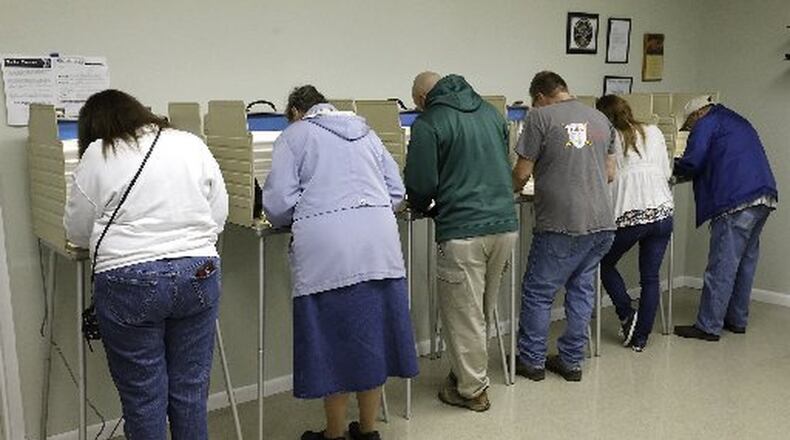Elections board members agreed after around 75 minutes of debate – but no formal vote — that it is deadlocked 2 to 2 on a Clear Ballot paper voting system and a hybrid system offered by ES&S. The paper system has the voter fill out by hand a paper ballot that is scanned, while the hybrid system uses a touch screen to mark the ballot that is printed onto paper and scanned.
The board has looked at options ranging from around $500,000 to more than $1.8 million.
The commissioners last week told election board member Ryan King, a Republican, and director Bev Kendall they would be willing to subsidize the $1,096,490 the state has allocated for a new system.
In the followup letter the board received Tuesday, the commissioners said they “are adamant that our voting process does not go backwards to a paper ballot system.” The board further said it strongly recommended the purchase of a hybrid system that has a cost estimate of nearly $1.9 million.
Fisher and fellow Democrat Audrey Gillespie indicated support for the paper system, while King and fellow Republican Rob Long said a hybrid system was the best choice.
Gillespie said she personally liked a hybrid system but added she believed it would be “fiscally irresponsible” to spend another $750,000 for a hybrid system when a paper system would meet needs. The $750,000 would be better spent elsewhere, she said.
Fisher called the hybrid system set up “no more than an electronic three quarter of a million dollar marking device.”
King said a return to a paper voting system after county voters have used the touch screen system for more than a dozen years makes no sense.
“Nothing in this world went back to paper,” he said.
King said a county information technology staff member who saw vendor presentations during the past year favored a hybrid system.
King also pointed out a secretary of state’s representative Tuesday encouraged the board to “put the brakes” on a decision until state purchasing prices on equipment options are available to all counties.
Fisher, who has said elections boards have kicked a decision on equipment down the road too long, said he hopes the board can make a decision soon.
About the Author
